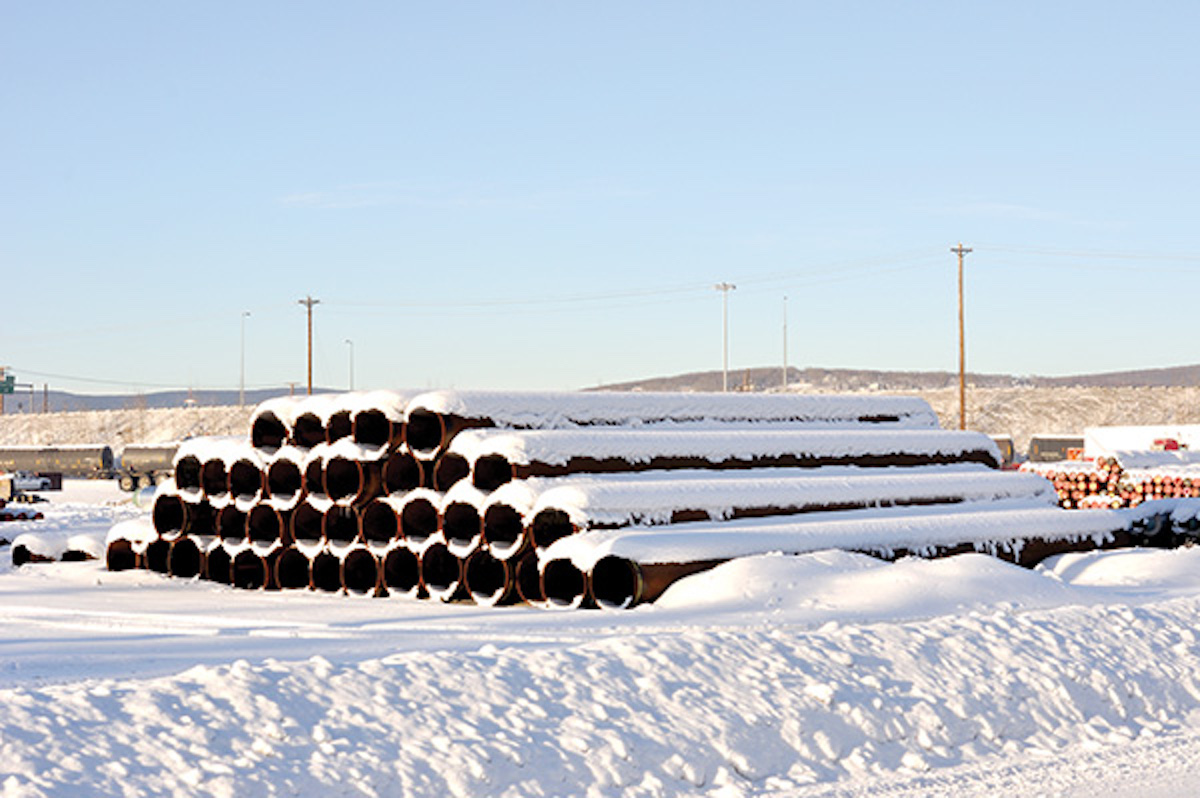US Needs More Pipeline Capacity for Reliable Gas Supply, INGAA Says
(Reuters) — The U.S. needs more natural gas pipeline capacity to maintain reliable gas supply during extreme cold weather, a trade group representing pipeline companies said on Monday in support of regulators who last week urged sought new rules to prevent a repetition of last winter's power outages.
The Federal Energy Regulatory Commission (FERC) and the North American Electric Reliability Corp. (NERC) urged lawmakers to fill a regulatory blind spot to maintain reliable supply of natural gas that was highlighted by an inquiry into power outages during Winter Storm Elliott in December 2022.
Elliott delivered sub-freezing temperatures and extreme weather warnings to almost two-thirds of the U.S., resulting in unforeseen energy generation supply losses.
Speaking for operators of around 200,000 miles (322,000 km) of pipelines, the Interstate Natural Gas Association of America (INGAA) said the regulators' report confirmed that its members "used all possible flexibility and storage withdrawals to deliver as much natural gas through the system as possible."
Declining production reduced flows of gas into pipelines during Elliott, while demand for the fuel for heating and power generation increased, dramatically lowering line pressures.
Falling pressure levels put the pipeline system at risk of collapse, the INGAA said, forcing operators to implement scheduling restrictions and reduce previously confirmed nominations for transporting the fuel.
The report had found that in New York City, Consolidated Edison declared an emergency because it faced a system collapse that would have taken "many months" to restore service in the middle of the winter.
"The United States needs more natural gas pipeline capacity to maintain a resilient system that affords homes and the power grid access to multiple sources of this critical fuel," the INGAA said.
In its 2023-24 winter outlook, the NERC said last week that prolonged, wide-area cold snaps threaten the availability of fuel supplies for natural gas-fired generation, warning there is not enough natural gas pipeline and infrastructure for the U.S. Midwest, Mid-Atlantic, and Northeast regions.
Related News
Related News

- Kinder Morgan Proposes 290-Mile Gas Pipeline Expansion Spanning Three States
- Enbridge Plans 86-Mile Pipeline Expansion, Bringing 850 Workers to Northern B.C.
- Intensity, Rainbow Energy to Build 344-Mile Gas Pipeline Across North Dakota
- U.S. Moves to Block Enterprise Products’ Exports to China Over Security Risk
- Court Ruling Allows MVP’s $500 Million Southgate Pipeline Extension to Proceed
- U.S. Pipeline Expansion to Add 99 Bcf/d, Mostly for LNG Export, Report Finds
- A Systematic Approach To Ensuring Pipeline Integrity
- 275-Mile Texas-to-Oklahoma Gas Pipeline Enters Open Season
- LNG Canada Start-Up Fails to Lift Gas Prices Amid Supply Glut
- TC Energy’s North Baja Pipeline Expansion Brings Mexico Closer to LNG Exports





Comments